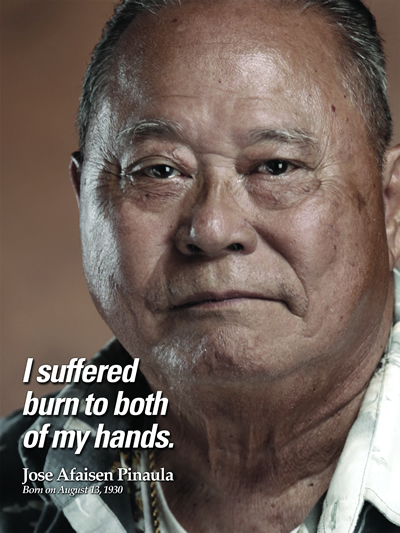 My name is Jose Afaisen Pinaula. I’m from Malojloj, Inarajan. I was 11 years old at the time. A little bit more than 11 years. I was born in August 13, 1930.
My name is Jose Afaisen Pinaula. I’m from Malojloj, Inarajan. I was 11 years old at the time. A little bit more than 11 years. I was born in August 13, 1930.
The physical trauma I received, and others alike here on Guam, shares the same feeling which our rights and our freedom was taken away.
We were treated and traumatized by the frequent formation and meeting reminding us that if we did not obey the Japanese Imperial order, we would be punished or killed by the firing squad. In addition, they frequently search our bodies and homes for weapons and other U.S. made goods or items.
At one time, Japanese soldier had slapped me six times, more time because he had claim that an order he received from the Japanese officer in charge was to inform the people working at the coral pit to stop and prepare to return to the camp before daybreak.
I have suffered painful burn to both of my hands that lasted at least three days, then I was assigned to keep the diesel oil torchlight burning all night.
I became nervous wreck. My morale was at its lowest breaking point. I was frightened and scared for my life, that I did anything the Japanese soldier just to survive and be alive. Forced to work, even if I was extremely ill, there was absolutely no excuse not to work, unless you on the verge of dying.
I reach a breaking point in my life when I did not care what happened to me. If I had a weapon, I would kill the Japanese guard and hope that I would be able to run away and hide afterward.
Real People. Real Stories. A weekly testimonial series provided by the Office of Senator Frank F. Blas, Jr. The testimony of Jose Afaisen Pinaula is recorded in the Guam War Claims Review Commission public hearing held in Hagåtña, Guam on December 9, 2003. This story is sponsored by the community involvement of Guam Premier Outlets (GPO). Photo courtesy of Expressions Studio.
